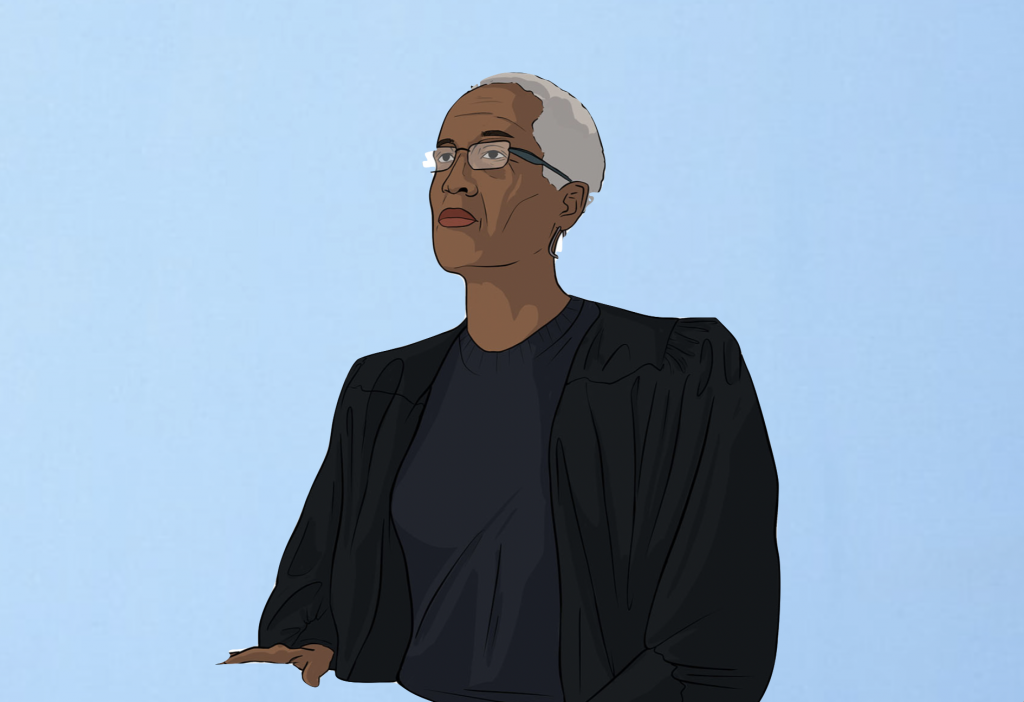“My social activism journey began before I was born. retired judge LaDoris Cordell says. “It began with my great, great grandmother and great-grandmother both slaves in the deep south. I take it back this far because I come from a line of people who survived being enslaved. They were resilient and resisted oppression, so I know it is in the blood,”
Cordell has been many things: a lawyer, a judge, an independent police auditor, a Palo Alto City Council member, and a vice provost of Stanford University. She was the first African-American judge in Northern California and the first female African-American Superior Court judge in Santa Clara County. As a fearless advocate for communities of color, her work has torn down walls between East Palo Alto and Palo Alto and transformed the community into what it is today.
Now, she recounts her journey of breaking down barriers in her memoir “Her Honor: A Judge’s Candid Look at our Legal System,” set to release in October. Through this book, Cordell hopes to continue educating the public during retirement by shining light on her work as a judge.
“The work we [judges] do is serious work and it impacts people’s lives,” Cordell says. “The public needs to become more aware of who we are and what we do.”
Rise to recognition
In the 1980s redlining, white flight, and discriminatory realty practices all contributed to a virtually segregated East Palo Alto and Palo Alto. Starting her career in an era of widespread and entrenched racial discrimination Cordell became an activist — if not an outright trailblazer — and pioneer for justice in the local community.
Over the course of 44 years, Cordell made legal assistance more accessible to communities of color, established a civilian oversight system in Palo Alto, and recently sued the city over the exclusive, residents-only policy for Foothills Park.
Immediately after graduating from Stanford’s Class of ‘74, Cordell became the first lawyer to open up a private practice in East Palo Alto. “I wanted to destroy the myth that you couldn’t have a decent law practice in a community of color,” Cordell says. “I wanted to make a statement, and I did.”
Policing the police
Cordell continued along her change-making path as she took on implicit bias and racial profiling in local police departments. As a Palo Alto City Council member from 2004 to 2008, she worked to bring an independent police auditor to investigate citizen complaints brought against the Palo Alto Police Department.
“At that time, it was very routine to see young people of color, especially young males, sitting on the curb and having white police officers standing over them in Palo Alto,” Cordell says. “These were young people who would come across the freeway from East Palo Alto, and always getting stopped and profiled.”
As a result of Cordell’s efforts, Palo Alto’s independent police auditor continues to file annual interim and final reports, and two independent auditors remain in charge of investigating citizens’ complaints and internal affairs issues with the PAPD.
Advocating for open access
However, one issue that Cordell was not able to address during her time as a member of the Palo Alto City Council was the ordinance that excluded non-residents from Palo Alto’s Foothills Park.
“I raised the issue [to open Foothills], and I couldn’t believe the blowback I received,” Cordell says. “I was getting emails from people and haters saying that ‘this was ours’ and ‘other people are just going to mess it up.’ I know what they meant by other people — people that didn’t look like Palo Altans, which at that time were mostly white.”
Even after leaving Palo Alto City Council, Cordell spearheaded the effort to open Foothills Park to all, regardless of residency. Cordell organized a group of plaintiffs while identifying lawyers from the American Civil Liberties Union and a private law firm to represent them. This past September, they sued the city and won the case. Now, the gates of Foothills Park are open for all and will continue to stay open because of an injunction included in the lawsuit.
After a decades-long career spent fighting for disenfranchised communities, all while facing racism and sexism in her own life, the key to Cordell’s success in breaking down boundaries lies in her mentality.
“It’s all about being persistent,” Cordell says. “If you know something is wrong, just don’t let it go. It’s not always going to be easy to make things right, but it can happen.”



